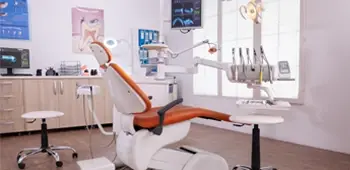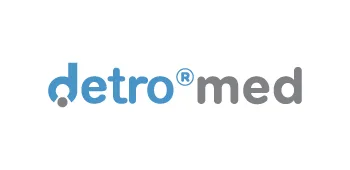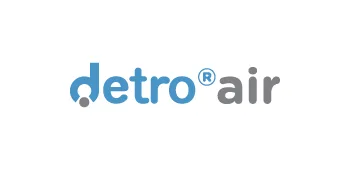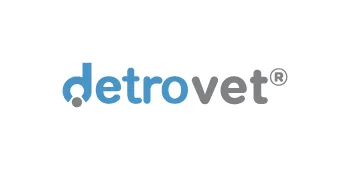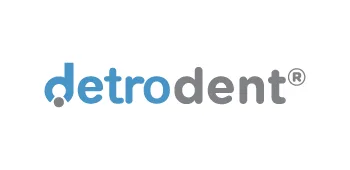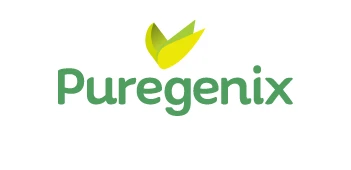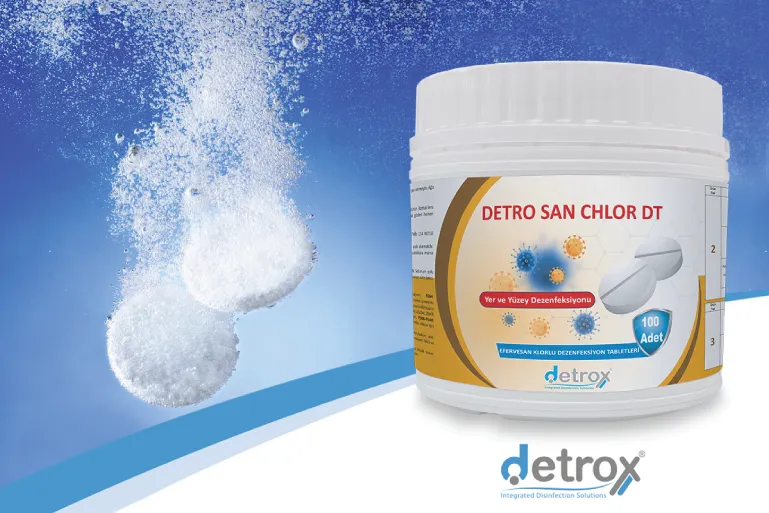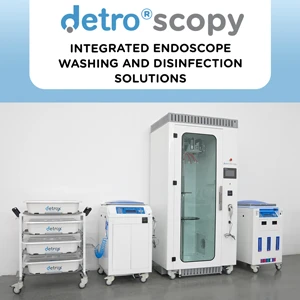Chlorine Tablets: An Effective Way of Disinfection
Chlorine tablets are an effective disinfectant widely used for disinfecting and cleaning water and hospital surfaces. In this article, we will examine in detail what chlorine tablets are, how they are used, their advantages and different areas of use.
1. What are Chlorine Tablets?
Chlorine tablets are a type of chlorine gas available in compact tablet form. Chlorine dissolves in water, helping to destroy microorganisms and impurities. These tablets are an important chemical product that helps in maintaining clean water and creating a healthy environment.
- Chemical Structure of Chlorine Tablets: The chemical structure of chlorine tablets basically contains a solid form of chlorine gas. These tablets are usually manufactured using compounds such as sodium or calcium hypochlorite. For example, the chemical structure of a chlorine tablet containing sodium hypochlorite is formed by the reaction of sodium hydroxide and chlorine gas. The main purpose of this chemical structure is to ensure that chlorine is slowly dissolved when added to water to disinfect the water.
- Types and Forms of Chlorine Tablets: Chlorine tablets can be found in different types and forms. They are generally divided into two main categories as tablet chlorine and powder chlorine. Tablet chlorine is easy to use and more practical to add to water. Also, tablets usually contain a binding agent, which allows the tablet to dissolve slowly. Powder chlorine, on the other hand, is available in granule or powder form and is used especially for the disinfection of large water tanks. Both types of disinfectants are effective in ensuring the cleanliness and hygiene of water, but they are preferred depending on their intended use.
Use of Chlorine Tablets
Two important factors when using chlorine tablets are correct dosing and proper application timing. These two elements ensure that chlorine tablets work effectively and help keep the water clean and hygienic. Here are some basic principles that you should know about:
- Correct Dosing:Proper dosing is the key to effective use of chlorine tablets. A certain amount of chlorine is needed for each area of use and this amount should be determined according to the manufacturer’s instructions. Overdosing or underdosing can prevent effective disinfection. Therefore, you should read the instructions carefully before using chlorine tablets and pay attention to correct dosing.
- Timing of Application: Applying chlorine tablets at regular intervals ensures that the water is continuously disinfected. There is a specific timing for adding chlorine tablets to water and this timing ensures that the product is effective. The timing of the application of chlorine tablets is very important, especially where pools or water tanks are used regularly. Generally, it is preferable to add chlorine tablets in the evening or when water usage is at its lowest, so that the effect of the chlorine is maximised. Following the timing of application helps to keep the water consistently clean and healthy.
3. Uses of Chlorine Tablets
Chlorine tablets are used in different industrial and personal use areas to keep water clean and hygienic. Here are some areas where these tablets are commonly used:
- Pool Chlorine Tablets: Chlorine tablets used in pools ensure that the water is free from germs, bacteria and algae. They also help maintain the pH balance of pool water. These tablets provide a healthy and safe swimming experience by ensuring regular disinfection of pool water.
- Use of Chlorine Tablets in Hospitals: In hospitals, sterilisation and infection control are critical. Chlorine tablets are used for cleaning and disinfecting hospital equipment and surfaces. They are also used in water tank disinfection to minimise the risk of infection.
- The Role of Chlorine Tablets in Water Tanks: Chlorine tablets in water tanks play an important role in drinking water treatment and industrial water cleaning. These tablets ensure that the water remains clean and drinkable. Especially in large water tanks, chlorine tablets are used to purify water from microorganisms and ensure drinking water safety. Regular use of chlorine tablets in water tanks helps to maintain the quality of water.
4. Disinfection Effect of Chlorine Tablets
Chlorine tablets are an effective tool for disinfecting water and controlling microorganisms. Here are two important factors affecting the disinfection effect of these tablets:
- Effects on Bacteria and Viruses: Chlorine tablets help to destroy bacteria and viruses in water thanks to the chlorine compounds they contain. When chlorine comes into contact with water, it damages the cell membranes of bacteria and viruses and prevents these microorganisms from multiplying. This ensures that the water is free of germs and the area where it is used is hygienic. This effect of chlorine on bacteria and viruses makes a significant contribution to making water safe and healthy.
- Microorganism Control: Chlorine tablets also play an important role in controlling microorganisms in areas such as pools, water tanks and industrial plants. It protects the quality of water by preventing the proliferation of microorganisms in water systems. Especially in pools, water tanks and hospitals, microorganism control is vital to reduce the risk of infection and maintain the cleanliness of water.
These disinfection effects of chlorine tablets are important for creating a healthy and safe environment in the areas where they are used. Therefore, regular use of chlorine tablets and adding the correct doses is a critical step in disinfecting water and ensuring microorganism control.
5. Chlorine Tablet Prices and Manufacturers
The prices of chlorine tablets can vary depending on many factors and may differ between different manufacturers. Some of the main factors that affect the price of chlorine tablets can be the following:
- Type of Chlorine Tablets: Chlorine tablets come in different varieties. For example, such as tablets containing sodium hypochlorite or calcium hypochlorite. The cost of each type may be different.
- Tablet Quantity and Dosage: When buying chlorine tablets, you usually need to choose a specific tablet quantity or dosage. Larger quantities or higher dosages of tablets may require more cost.
- Manufacturer: Different manufacturers producing chlorine tablets may offer different prices. Known and trusted brands usually come at higher prices, while lesser known brands may offer more affordable prices.
- Package Size: Chlorine tablets are usually sold in different pack sizes. Large packs can often be more advantageous in terms of unit price.
- Point of Purchase: Buying chlorine tablets online or picking them up at a local store can affect prices. Some online retailers or wholesalers may offer more competitive prices.
When comparing prices of chlorine tablets, you should consider the type, quantity, dosage, and manufacturer of the tablets. You can also find an affordable and effective option by considering the quantity of your water and your intended use. When comparing prices, quality and reliability are also an important factor, so it is always important to buy products from trusted manufacturers.
6. Differences Between Tablet Chlorine and Powder Chlorine
Tablet chlorine and powder chlorine are two different forms of chlorine commonly used for water disinfection. Both ensure that water is clean and disinfected, but there are some important differences. Here are the main differences between tablet chlorine and powdered chlorine:
- Physical Form:
Tablet Chlorine: Tablet chlorine is available in compressed tablet form. These tablets are usually offered in a specific weight or dosage and are designed for direct addition to water. The tablets dissolve slowly in water, allowing chlorine to be released into the water.
Powdered Chlorine: Powdered chlorine is available in granular or powder form. Powdered chlorine requires metered dosing before mixing into water. Powdered chlorine needs to be mixed with water quickly, so the mixing process may require more attention and time.
- Ease of Use:
Tablet Chlorine: Tablet chlorine is easy to use because the tablets are ready at a specific dosage. They are widely used in pools or suitable dosing systems. It is only necessary to add the tablets to the dosing device or water.
Powder Chlorine: Powder chlorine requires accurate dosing by hand. This may require more care for dosing and mixing the water. However, for those who want to precisely control the chlorine level of water, powder chlorine may be a better option.
- Storage and Transport:
- Tablet Chlorine: Tablet chlorine is in a more compact and portable form. It may be more convenient for storage and transport.
- Powder Chlorine: Powder chlorine comes in larger packages and may require more space to store. Also, powdered chlorine has a risk of spillage or leakage, so it requires careful handling.
- Fast Acting vs. Slow Release:
- Tablet Chlorine: Tablet chlorine dissolves slowly in water, helping chlorine provide a long-lasting effect. This is particularly suitable for providing continuous disinfection in pools or suitable dosing systems.
- Powdered Chlorine: Powdered chlorine mixes more quickly into the water and takes effect faster. This is more suitable for emergency disinfection needs.
Both forms of chlorine are useful in water disinfection, but you can choose which form is more suitable depending on your intended uses and preferences.
7. Water Tank Chlorine Tablets: Usage and Recommendations
Water tank chlorine tablets are an effective method used for cleaning and disinfecting the water inside water tanks. These tablets are widely used in drinking water treatment and industrial water cleaning. Here is the use of water tank chlorine tablets and some suggestions:
- Dosing:
Proper dosing is important when using water tank chlorine tablets. Since each water tank has a different capacity, it is important to calculate the amount of tablets correctly. Usually the instructions for use of the tablets indicate the recommended dosage for a given tank volume. You should follow these instructions carefully.
- Tablet Adding Location:
When adding tablets to the water tank, it is important to use a suitable tablet dispensing system. This system ensures that the tablets are released slowly into the water and prevents the tablets from settling. Also, instead of adding the tablets directly to the water, it is better to place them in a special reservoir so that the tablets dissolve and mix with the water.
- Distribution of the tablets:
It is important to ensure that the tablets are evenly distributed in the water tank. Even distribution of the tablets in the water ensures effective disinfection everywhere in the water. To ensure this, it is recommended to use a suitable system to improve the circulation of water in the tank.
- Regular Checks:
To ensure that the water tank chlorine tablets are working effectively, you should carry out regular checks. The water level, quantity of tablets and disinfection levels should be monitored periodically. These checks help you maintain the quality of the water and make adjustments if necessary.
- Safety Precautions:
Chlorine tablets should be handled with care because it is a chemical disinfectant. Avoid contacting chlorine tablets by hand and store the tablets outdoors or in a well-ventilated area. Also remember that chlorine can be harmful to human health and direct contact should be avoided.
Water tank chlorine tablets are important for maintaining the quality of drinking water and making it potable. Using these tablets correctly and performing regular maintenance ensures that the water is clean and healthy. It is important to choose a water tank chlorine tablets solution that suits the characteristics and needs of your water tanks.
Chlorine Tablets in Hospitals: Use and Recommendations
Chlorine tablets used in hospitals are an effective method of disinfecting floors and surfaces. These tablets are also widely used in drinking water treatment and industrial water cleaning. Here is the use of chlorine tablets in hospitals and some recommendations:
- Dosing:
Correct dosing is important when using Chlorine Tablets in hospitals. Since each surface to be disinfected is of different sizes, it is important to calculate the amount of water, tablet amount and tablet weight correctly.
- Correct Method of Use:
The disinfectant prepared with correctly dosed tablets should be used with the ‘S’ method on hospital surfaces. On the surface to be cleaned and disinfected, the wiping process is started from the extreme point and the mob or cleaning apparatus used until the exit point is applied in the S-shape without removing it from the surface.
- Regular Controls:
In order to ensure the effectiveness of the chlorine tablet used for surface disinfection in hospitals, the presence of microorganisms should be checked by taking swab samples at regular intervals. The amount of water to be used for the disinfectant to be prepared and the amount and weight of tablets to be added should be checked regularly. These checks will help prevent infections and help you make adjustments if necessary.
- Safety Precautions:
Chlorine tablets should be handled with care because they are a chemical disinfectant. Avoid handling chlorine tablets by hand and store the tablets outdoors or in a well-ventilated area. Also, remember that chlorine can be harmful to human health and direct contact should be avoided.
Chlorine tablets used in hospitals are important for controlling nosocomial infections. Using these tablets correctly and checking their effectiveness can help to avoid the problems that can arise from nosocomial infections. It is recommended to choose the right chlorine tablet according to the size of the area to be disinfected and the amount of water to be used.
Conclusion and Recommendations
Chlorine tablets are an effective disinfectant option that helps keep hospital surfaces and water hygienic and healthy. Proper use and regular application ensures proper infection control and clean and safe water in hospitals.



